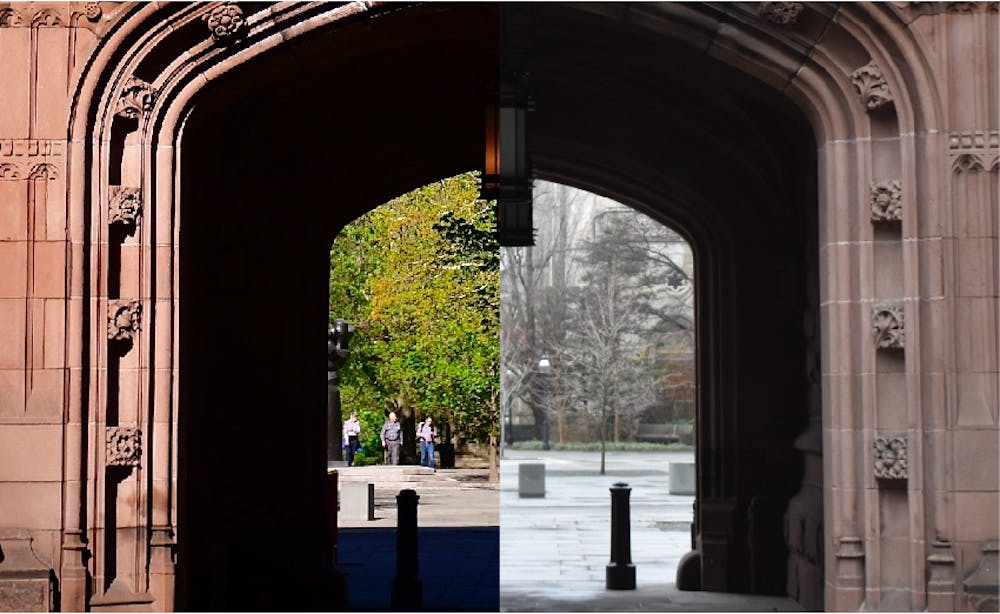“Now more than ever, we must all share the responsibility for keeping our community safe.” This is the beginning of the Princeton University Social Contract for Spring of 2021, which all undergraduate students residing on or near campus had to sign prior to the start of the semester. Aimed at preventing the spread of COVID-19 on campus and in the Princeton community, it seems to be successful: as of the time of writing, spread on campus has been kept in single-digit figures every week, and we have not had to go into any larger scale quarantines since the initial arrival protocol for residential students.
At the beginning of March, the Office of the Dean of Undergraduate Studies released a report on the cases of social contract violations that the University has adjudicated since the beginning of the academic year.
Despite this, it has been challenging to get timely and reliable information about the enforcement of the social contract. I understand the concern regarding sharing more information: the fear of releasing any identifiable information about students who already feel pressured because they are being investigated or have been punished.
However, without the University publishing more detailed information, most of our understanding comes from word of mouth: people spread rumors that distort and sometimes actively misrepresent the actual nature of these difficult situations. When rumors spread, a false sense of alarm or security can arise for students, and a vacuum of information only leads to uncertainty.
This recent increase in information shared is an improvement: in speaking directly to students, the reports answer questions and help stop the rumor mill regarding these situations. We now know that 44 of the 55 violations mentioned by the Office have led to disciplinary probation, an extremely serious penalty that shows up on the records of students for the duration of their time at Princeton. This could be enough to deter many students who could be engaging in similar behavior.
Even more transparency would have an added benefit: detailing the nature of the infraction would also allow students to see what has been happening to others and may serve as an additional deterrent, potentially dissuading some from getting into risky situations.
Greater information sharing would have helped even those who broke the social contract understand why they were punished so strictly. For many cases, the Residential College Disciplinary Board (RCDB) meets with students to discuss the infraction and then the board decides on a punishment. Based on a set of interviews that I conducted with students who faced the RCDB for potential social contract violations before the recent report was released, their reaction was one of surprise and anguish.
Some students who were given disciplinary probation were willing to discuss their situations with me. “We were confused as to why they were giving out punishments lasting for multiple years for offenses pertaining to COVID, which will not be happening in two years,” one student said.

Had the University offered clearer messaging as to the way in which it was punishing violations beyond this semester, it could have encouraged many students to make different choices. This, in turn, could have led to safer behavior on campus and would have helped to decrease the punishments given out. Furthermore, perhaps those who have already gotten penalized would believe that they were not given “unreasonable” punishments.
The benefits of greater transparency does not have to be limited to the social contract or need to end this semester. Every year, cases go to the Committee on Discipline and the Honor Committee about violations in academics and other parts of campus life that can lead to probation, suspension, or expulsion, among other things.
According to the anonymous student Facebook page TigerConfessions#, there have been questions about the fairness of these hearings. “#30168: if i were white, maybe the committee of discipline would not have been so inhumane to me,” posted one student.
With greater clarity, establishing a clear set of punishments will allow students to know exactly what they are risking and lessen their sense that they have been unfairly treated by the process or the results.

At the end of the day, the social contract is in place to protect campus health, and the Honor Code is there to protect academic integrity. When students break these rules, they know that they could face punishment from the administration or another group. However, in the spirit of fairness and equality, it is imperative that the punishments are made clear and that there are clear rules in place as to what disciplinary actions will follow after a violation is committed.
Not only will students know the consequences and be less likely to engage in risky behavior, but the administration will also be able to ensure that punishments are fair and that students are aware of the realistic range of possible consequences for violations. Such changes would only enhance what we need to keep doing as a campus community: acting safely and smartly as we work through this together.








